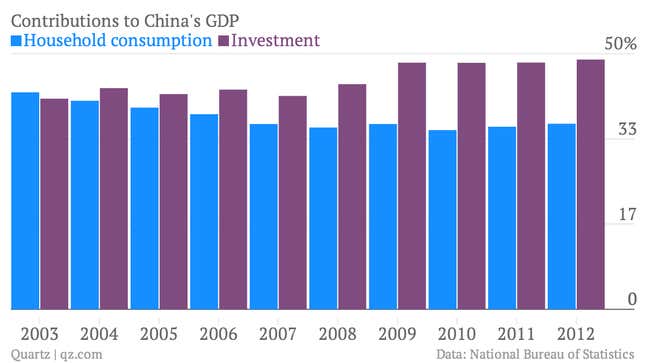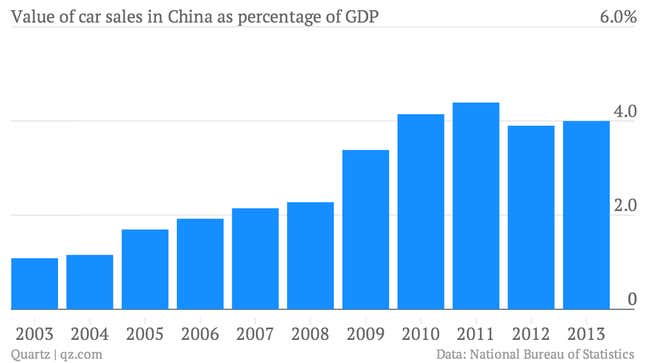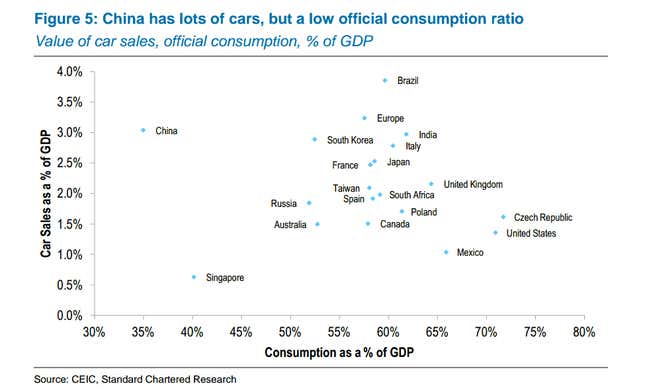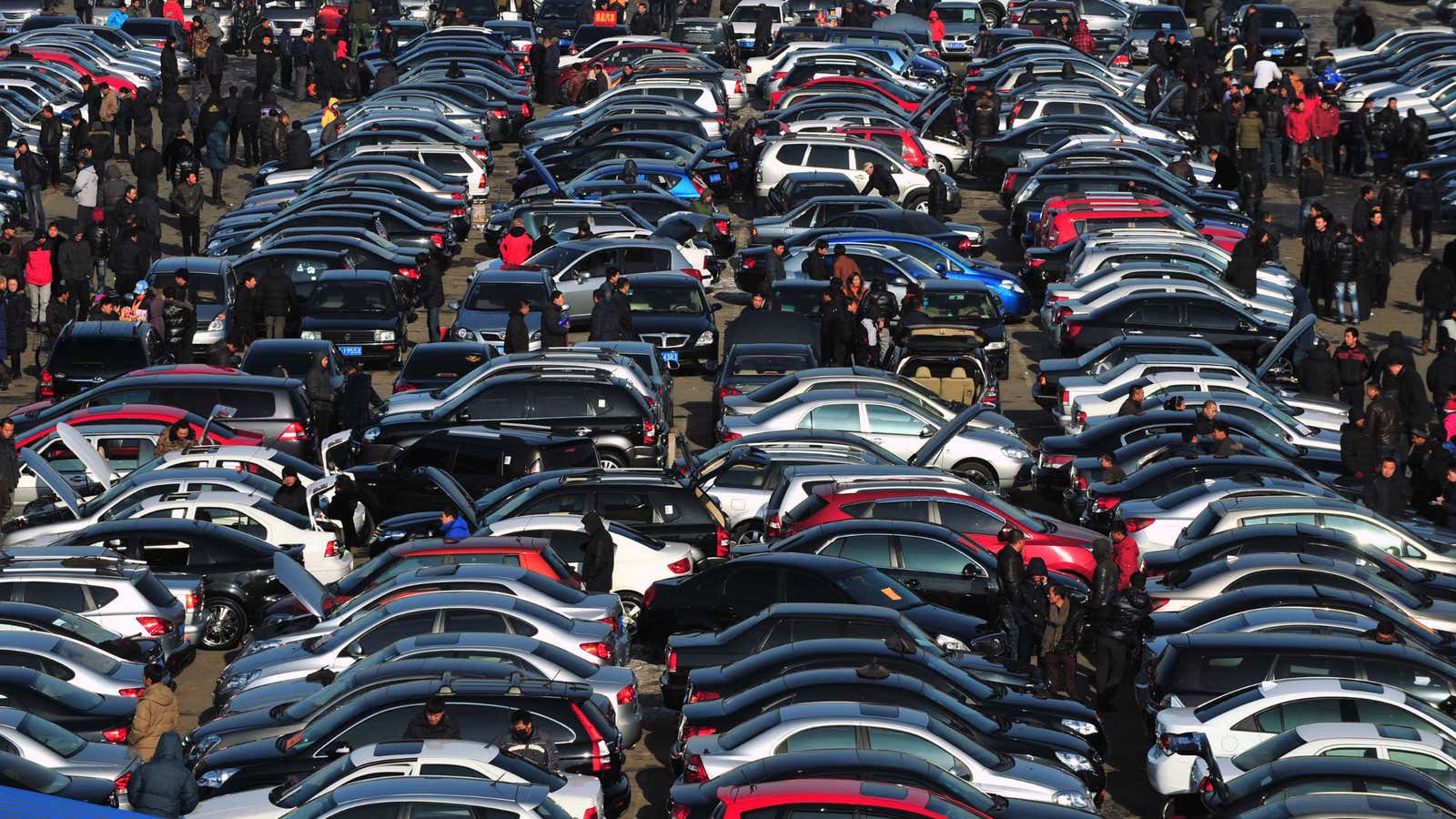China has many economic problems, but perhaps its biggest is that its consumers don’t consume. In fact, China’s consumption as a proportion of its total economic output is one of the lowest in the world—around 36% of GDP, compared with around a 60% global average (for example, South Korea’s is 50% and the US’s is around 70%).
This is a worry in large part because of what it implies about another contributor to GDP growth: investment. That’s now generating nearly 50% of China’s GDP. And because China’s investment levels are creating perilous amounts of debt, the government is intent on “rebalancing” the economy so that a higher share of demand comes from households.

There are reasons to suspect that China’s consumption is nowhere near as low as the official data suggest, as Stephen Green and Wei Li at Standard Chartered highlight. For one, there’s “grey income,” cash that’s exchanged under the table, which escapes the notice of the state statisticians. In addition, the Chinese government undercounts how much people pay in rent.
That kind of spending is hard to confirm. So Green and Li looked at a single, relatively large purchase that is much clearer and easier to collect: car sales. Even as consumption’s contribution to GDP has dropped over the last decade, China’s car sales as a percentage of GDP rose steadily.

To add more context to that measurement, Green and Li compared the value of car sales as a proportion of GDP with overall household consumption versus GDP, and plotted China’s data alongside those of other major countries. As you can see, China is a huge outlier:

While Chinese households purportedly contribute a relatively low share to China’s GDP—far, far less than any other country—China spends roughly the same kind of money on cars that Europeans or South Koreans do. ”This suggests that either the car… data or the consumption share is wrong,” say Green and Li. “We think it is the latter.”
In other words, unless China’s car sales data overestimate the amount households actually spend on cars—and assuming that Chinese people don’t spend an unusually high amount on cars—the official tally of household consumption seems to undercount how much people are actually spending. That implies that China is further along in rebalancing its economy than it appears.




